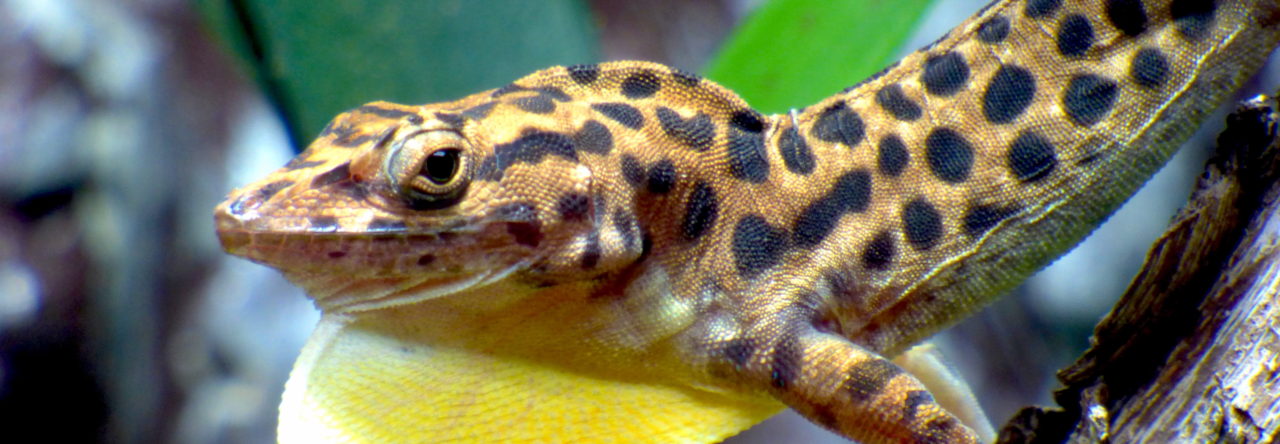Anolis sagrei has successfully invaded several countries including the United States, Mexico, some Caribbean islands, and even Taiwan and Singapore in Asia. As an invasive species, brown anoles can reach high population densities, expand their range rapidly, and have a negative effect on native species of lizards.
Now, this tree lizard has gone further. A group of Ecuadorian herpetologists recently discovered some individuals of this species in two localities on the Pacific coast of Ecuador. These individuals also represent the first record of this invasive species in South America.
A juvenile male individual of Anolis sagrei found in Ecuador
World map showing the distribution of Anolis sagrei. Green spots correspond to native distribution, blue spots non-native distribution, and the red star corresponds to the new records from Ecuador.
Individuals were found in an urban area with a mix of native and introduced species of plants. Although an established population has not been confirmed, this finding certainly represents a potential threat to local species of lizards from Ecuador, home to 38 species of anoles. A note reporting this discovery is in publication process.
Acknowledgments
Thanks to Omar Torres-Carvajal who helped with the post.
- Anolis sagrei Now in the Southern Hemisphere, First Record for South America - February 16, 2017




Kat Valero
Interesting!
A while ago I’ve had a student doing some MAXent models of Anolis (just for practice). Ecuador didn’t show up as suitable habitat at all …
Kat
Kat Valero
(note the unfiltered data points in the Himalaya (; )
Luis Amador
Hi Kat.
Sorry for my late reply.
Could be due we found this species in urban areas and artificial ecosystems. However, several places in Ecuador can provide excellent conditions for A. sagrei.
L.
Skip Lazell
Have not seen even one here in Guangdong, China, but will let you know as soon as I do! Skip
bolko
What if the place had no lizards to begin with? Or what if the native lizards exploit very different environmental niches? Should we still persecute them because such ttells the modern and fashionable conservation dogma?